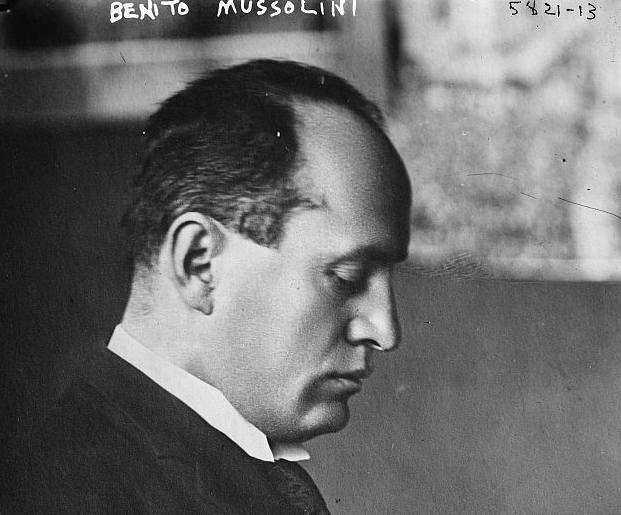Mussolini’s fascists seize power in Italy
Naples, 8 November 1922 – Last week political power in Italy was seized by anti-socialist revolutionary Benito Mussolini and his followers known as Fascisti.
Reports from the south of the country indicate that support for the new the fascist government is widespread.
An Irish Times correspondent in Naples noted in recent days that local administrations were ‘unanimously falling in line’, and further claims that ‘perfect order prevails’ in the region.
To the fascination of tourists, the streets of Naples are understood to be crowded with fascist militia wearing ‘black fez-like caps, with black tassels attached, black shirts, civilian trousers tucked into black putties, armed with a motley collection of rifles, revolvers, clubs and canes, singing anthems and songs of youth or giving the ancient Roman battle cry.’
With an estimated 40,000 Fascisti in the Naples district, the Socialist Party has advised its supporters to stand aside for the moment. The advice to socialist adherents is to wait until the ‘enemy’s squall has blown over’.
British Pathé newsreel footage of crowds acclaiming Mussolini in Rome 1922
From Rome, another Irish Times correspondent has offered a similar account, writing this week of the transformation in Italy’s political landscape as popular allegiances have shifted from communism to fascism.
Where, he writes, just two years ago, millions of Italians ‘flaunted the red flag and defied the government’ and where factories had been seized and soviets proclaimed, today ‘militant socialism and communism are dead, non-existent; stamped out by an intensely nationalistic movements that swept in a flame of ardent patriotism from Sicily to the Alps.’
The Irish Times correspondent does not appear uneasy by the current turn of events and has described the rise of fascist movements in Italy, Austria, Hungary and Germany as a ‘rally of Europe’s harassed and war-destituted people, in what, to Europe, is almost a life-and-death struggle against Moscow’s panacea for paradise.’
Meanwhile, following a telegram exchange between Mr Mussolini and the new British Prime Minister, Andrew Bonar Law, Reuters is reporting that both sides are in agreement of the need for continued solidarity and camaraderie between the two countries. They maintain that the interests of peace and civilisation can only be advanced by friendly and loyal cooperation between the Allied powers.
[Editor's note: This is an article from Century Ireland, a fortnightly online newspaper, written from the perspective of a journalist 100 years ago, based on news reports of the time.]





















